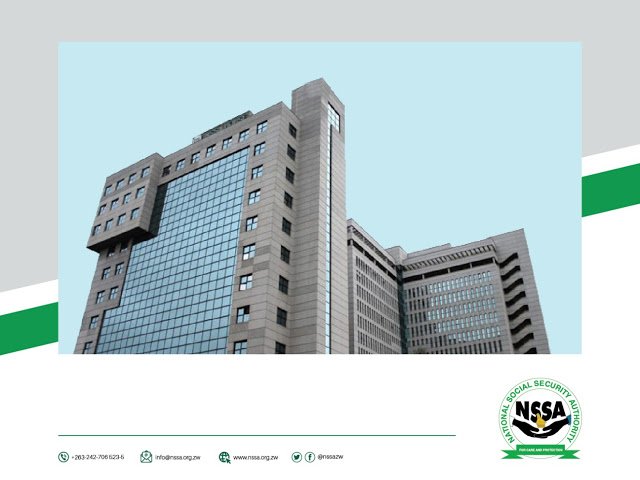Noah
Kupeta
The
National Social Security Authority (NSSA) has embarked on comprehensive and
robust social security and protection mechanisms against the Covid-19 pandemic
on employees and organisations as part of efforts to contain the rapid spread
of the disease.
NSSA,
a State-administered insurance and pension entity, was created by an Act of
Parliament of Zimbabwe, through the NSSA Act (Chapter 17:04) of 1989, to
enhance social security and protection against the economic and social distress.
NSSA
marketing and communications executive Tendai Mutseyekwa told this publication
that they had embarked on serious and comprehensive training of nurses and
employees pertaining to organisational healthy safety in the context of Covid-19.
“In
line with our mandate to promote health and safety at work, we are conducting
joint operations with the Ministry of Public Service, Labour and Social Welfare
to inspect whether or not companies are complying with Covid-19 guidelines as
set by the Ministry of Health and Child Care.
“We
also provide training for occupational health nurses and safety and health
professionals, as well raise awareness on issues to do with health and safety
at work through various media channels,” said Mutseyekwa.
NSSA
currently covers four branches of social security and is yet to cover the
remaining five branches.
This
has also been affected by continuous expansion of a huge informal sector, which
is not covered by social security.
Mutseyekwa
said organisational health remains a priority in NSSA’s endeavour to cover the inevitable
nonetheless.
“As
an entity responsible for social security and occupational safety and health,
we have put in place measures to prevent the spread of the coronavirus by
making most of our services available online and reducing the number of
employees coming to work at any given time
“We
have also designed a health monitoring questionnaire that employees fill each
time they come to work. We have set up a Covid-19 response team comprising
nurses and doctors to check on our staff by testing those found with the
symptoms as well as following up on those infected to ensure that they receive
adequate treatment and eventually be able to return to work healthy,”
Mutseyekwa said.
Organisational
health safety in Zimbabwe came under more intense spotlight in recent months
following the spread of coronavirus.
Some
analysts are convinced that the initiative by NSSA will go a long way in
complimenting the African Union Sustainable Development Goal number three which
focuses on good health and wellbeing through health insurance, medical aid
schemes and workmanship compensation, accidents and injuries, disability, and
high cost of medication.
Zimbabwe
Nurses Association (Zina) president Dr Enock Dongo said social security
protection mechanisms in face of pandemics should be holistic, comprehensive
and goal-oriented.
He
implored medical aid insurance companies to enhance their response to
organisational health safety against Covid-19 by appreciating loss of incomes
to employees and organisations.
“Medical
aid societies play a vital role in enhancing public and organisational health.
They are therefore expected to be innovative enough to prepare on how to fight
pandemics.
“The
monthly premiums from policy holders naturally increase, with those of
individual policy holders sometimes doubling up. This further strains them yet
that individual has been contributing so much over a course of time,” said
Dongo.
Some
policy holders said they too were worried by the erosion of the value of their
policies in light of the highly inflationary economic environment compounded by
the pandemic.
“Our
organisations are failing to give us the service we expect in the event of a
risk because of this hyperinflationary environment. I have worked for this
organisation for many years contributing my premiums, but most employees are
carrying the burden of topping up to service providers in case of need,” said
one policy holder.
Dr
Grace Muradzikwa, who is a commissioner with the Insurance and Pension
Commission (IPEC) said Covid-19 was indeed impacting on the performance of the
sector.
“The
circumstances have impacted on the ability of organisations to effectively
manage social security and protection of employees from work related risks. Reduced
disposable income owing to company closures, retrenchments and lack of formal
employment opportunities have seen organisations accumulating arrears of $887
million in premium arrears,” said Muradzikwa.

